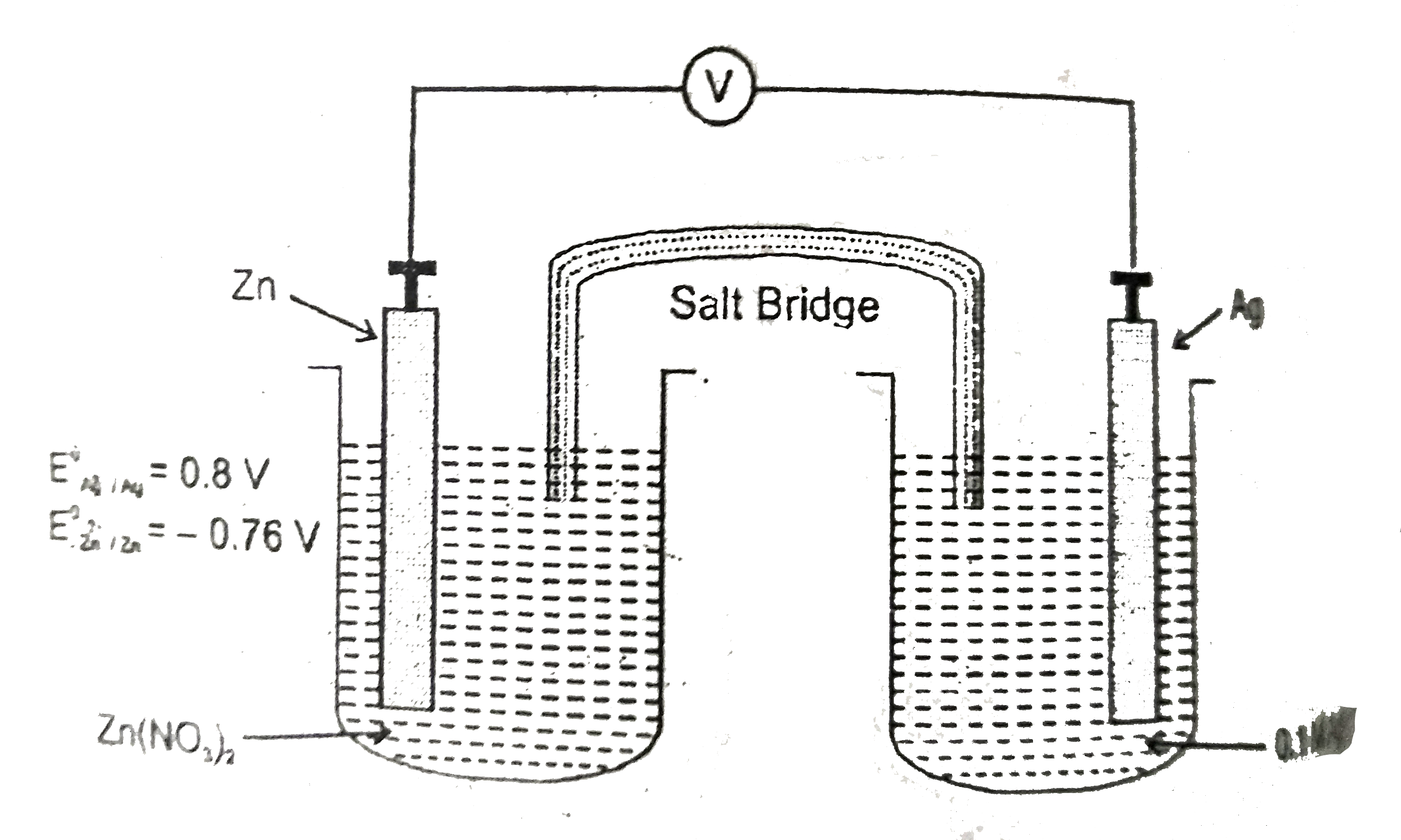The cell potential becomes half if the cell reaction is divided by 2 througout.
The correct Answer is:F
Cel potential is an intensive property
Topper's Solved these Questions
- BOOK - CENGAGE CHEMISTRYCHAPTER - ELECTROCHEMISTRYEXERCISE - Archieves (Linked Comprehension )13videos
ELECTROCHEMISTRY
- BOOK - CENGAGE CHEMISTRYCHAPTER - ELECTROCHEMISTRYEXERCISE - Archieves Multiple Correct Ansers2videos
ELECTROCHEMISTRY
- BOOK - CENGAGE CHEMISTRYCHAPTER - ELECTROCHEMISTRYEXERCISE - Exercisefill In The Blanks25videos
ELECTROCHEMISTRY
- BOOK - CENGAGE CHEMISTRYCHAPTER - D AND F BLOCK ELEMENTSEXERCISE - Archives Subjective29videos
D AND F BLOCK ELEMENTS
- BOOK - CENGAGE CHEMISTRYCHAPTER - GENERAL PRINCIPLES AND PROCESS OF ISOLATION OF ELEMENTSEXERCISE - Archives (Subjective)14videos
GENERAL PRINCIPLES AND PROCESS OF ISOLATION OF ELEMENTS
Similar Questions
The standard oxidation potential of silver electrode is given as −0.799V. The standard reduction potential of copper electrode is given as 0.33 V. Find out the emf of the cell constituted by these two electrodes. Also write the half -cell reactions involved in the cell and given cell representation
View Solution
Consider the following electrochemical cell.
(a). Write a balanced net ionic equation for the spontaneous reaction that take place in the cell.
(b). Calculate the standard cell potential E0 for the cell reaction.
(c). If the cell emf is 1.6V what is the concentration of Zn2+?
(d). How will the cell potential be affected if Kl is added to Ag+ half-cell?View Solution
Knowledge Check
- Question 1 - Select One
A half cell reaction is one that
AInvolves only half a mole of electrolyteBGose only half way to completionCTakes place at one electrodeDConsumes half a unit of electricity - Question 2 - Select One
A half-cell reaction is one that
Atakes place at one electrodeBconsumes half a unit of electricityCgoes only half way to completionDinvolves only a half mole of electrolyte - Question 3 - Select One
Given below are half-cell reactions
A2.69V, the reaction will not occurB−2.69V , the reaction will occurC−0.33V, the reacton will not occurD−0.33V, the reaction will occur
A galvanic cell has electrical potential of 1.1 V. If an opposing potential of 1.1 V is applied to this cell, what will happen to the cell reaction and the current flowing through the cell ?
View SolutionThe electrode potential of oxidation half cell
View SolutionThe electrode potential of oxidation half cell
View SolutionThe reaction is sontaneous if the cell potential is
View SolutionThe half cell potential of a hydrogen electrode at pH = 10 will be
View Solution

